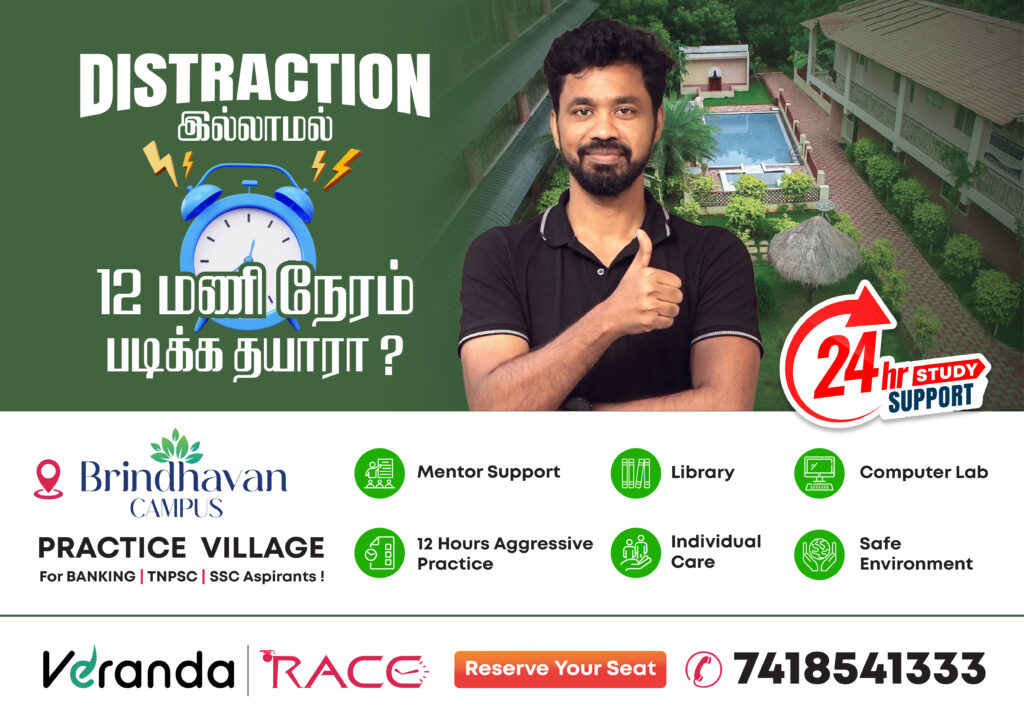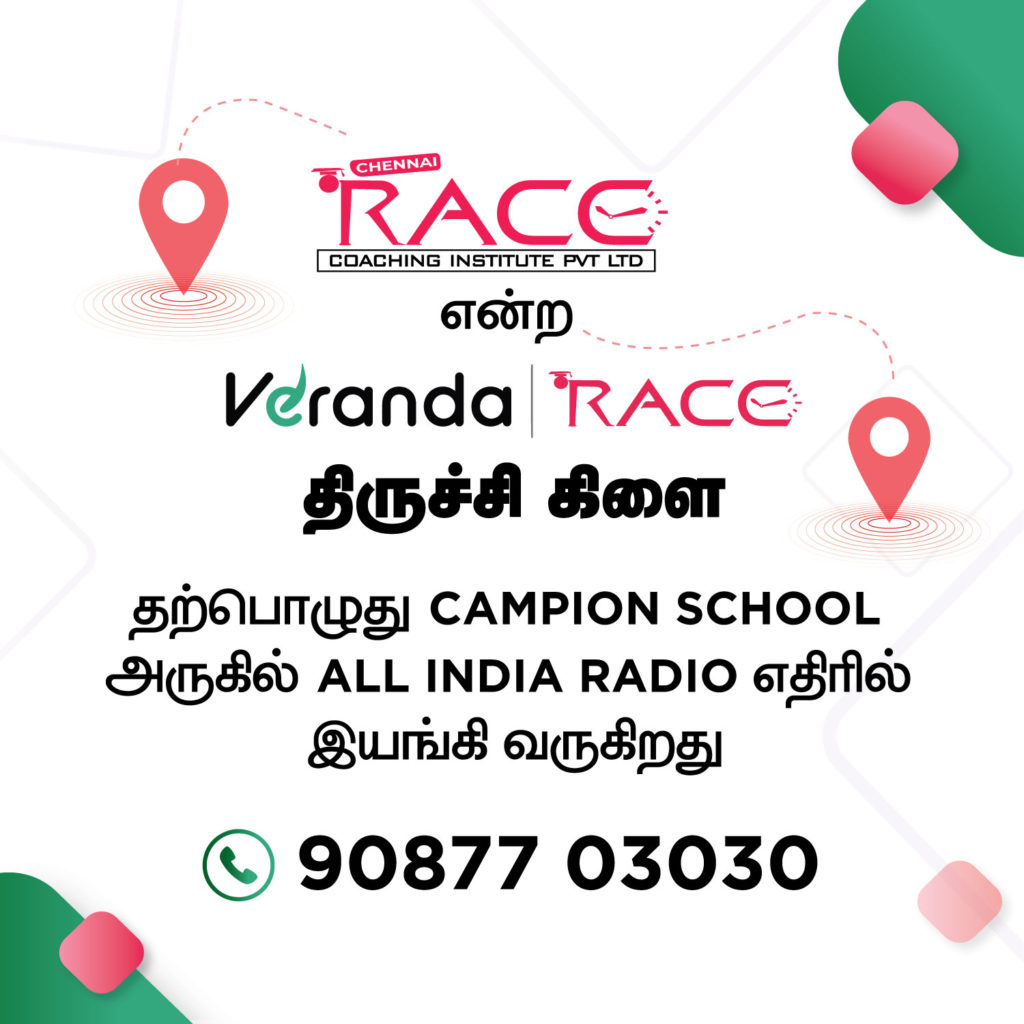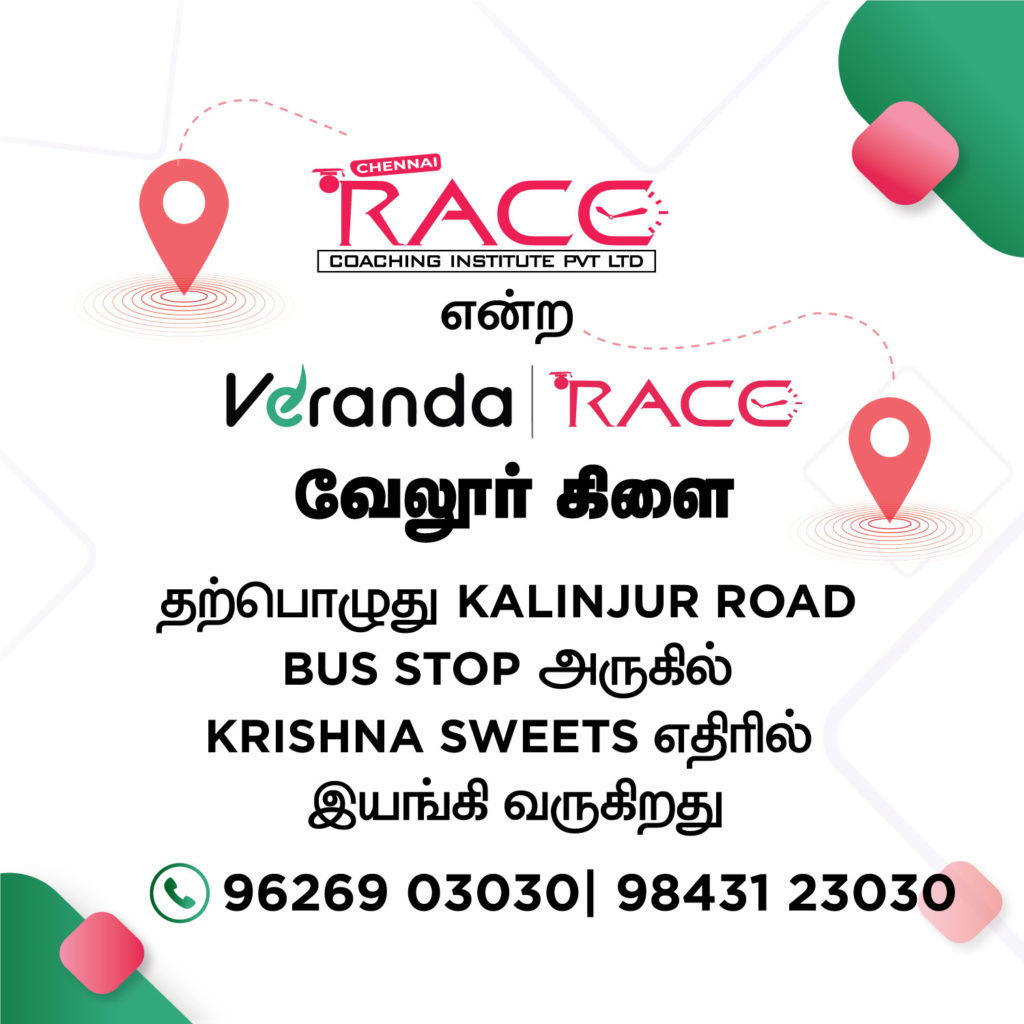
TNPSC Tea Time Test Series – Day 17 – Veranda Race
Share on facebook Share on whatsapp Share on twitter Share on telegram Share on linkedin Share on email TNPSC Tea Time Test Series – Day 16 – Veranda Race Dear TNSPC Aspirants, மாணவர்களே! இன்று பதினாறாம் நாள்…!!!! இன்றைய தேர்விற்கு நீங்கள் தயாரா? இந்த வருடம் வரவிருக்கும் TNPSC தேர்வுகளுக்கு தயாராகும் விதமாக Veranda RACE இனிவரும் நாட்களில் தினசரி TNPSC Quiz நடத்த உள்ளோம். இந்த தேர்வுகளை நீங்கள் Veranda RACE blog-ல் தினமும் மாலை 6




